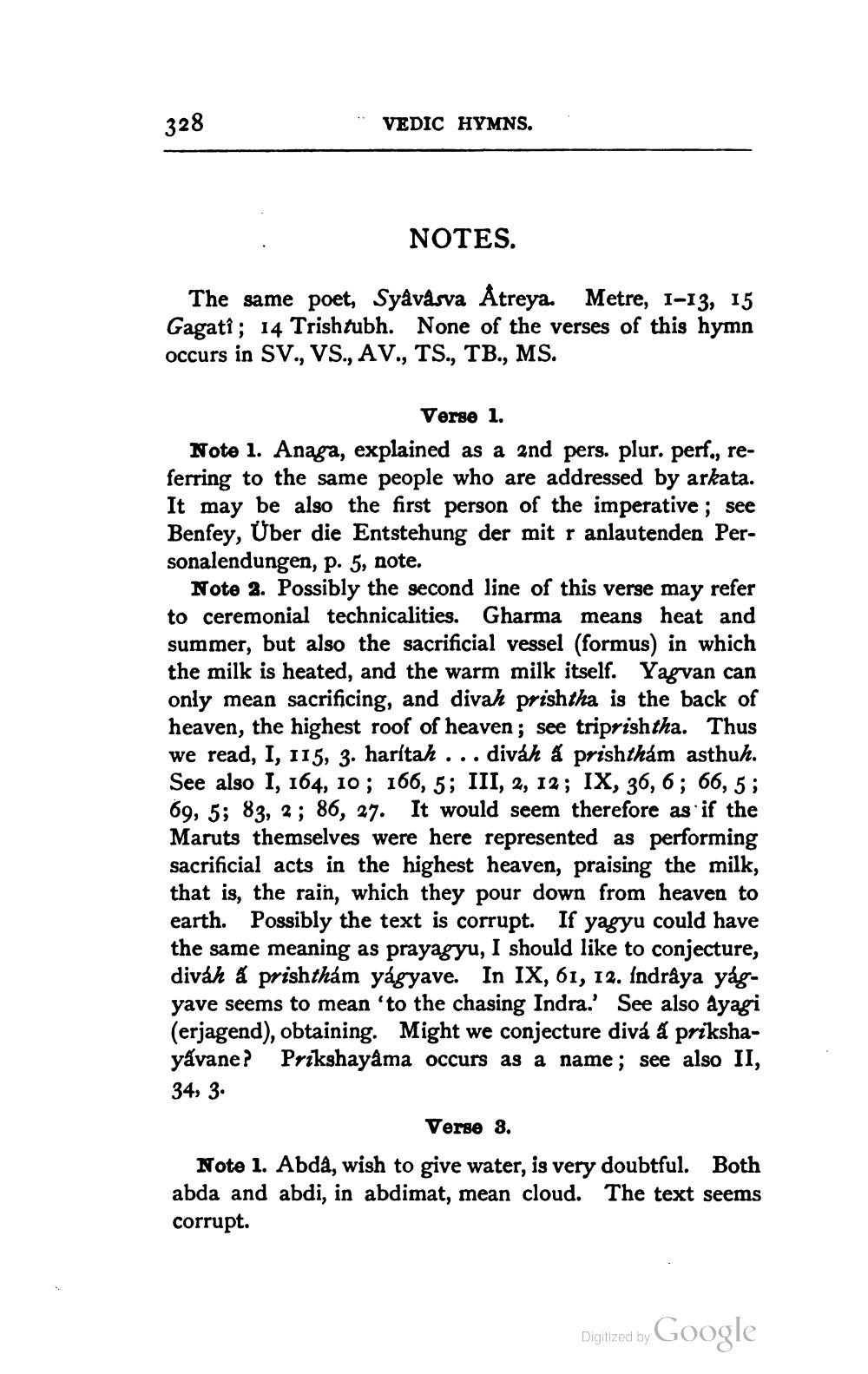________________
328
VEDIC HYMNS.
NOTES.
The same poet, Syavasva Åtreya. Metre, 1-13, 15 Gagati; 14 Trishtubh. None of the verses of this hymn occurs in SV., VS., AV., TS., TB., MS.
Verse 1. Note 1. Anaga, explained as a 2nd pers. plur. perf., referring to the same people who are addressed by arkata. It may be also the first person of the imperative; see Benfey, Über die Entstehung der mit r anlautenden Personalendungen, p. 5, note.
Note 2. Possibly the second line of this verse may refer to ceremonial technicalities. Gharma means heat and summer, but also the sacrificial vessel (formus) in which the milk is heated, and the warm milk itself. Yagvan can only mean sacrificing, and divah prishtha is the back of heaven, the highest roof of heaven; see triprishtha. Thus we read, I, 115, 3. harstah ... diváh a prishthám asthuh. See also I, 164, 10; 166, 5; III, 2, 12; IX, 36, 6; 66, 5; 69, 5; 83, 2; 86, 27. It would seem therefore as if the Maruts themselves were here represented as performing sacrificial acts in the highest heaven, praising the milk, that is, the rain, which they pour down from heaven to earth. Possibly the text is corrupt. If yagyu could have the same meaning as prayagyu, I should like to conjecture, diváh a prishthám yágyave. In IX, 61, 12. Indraya yagyave seems to mean 'to the chasing Indra.' See also ayagi (erjagend), obtaining. Might we conjecture divá a prikshayávane? Prikshayâma occurs as a name; see also II, 34, 3.
Verse 3. Note 1. Abda, wish to give water, is very doubtful. Both abda and abdi, in abdimat, mean cloud. The text seems corrupt.
Digitized by
Digilzed by Google




